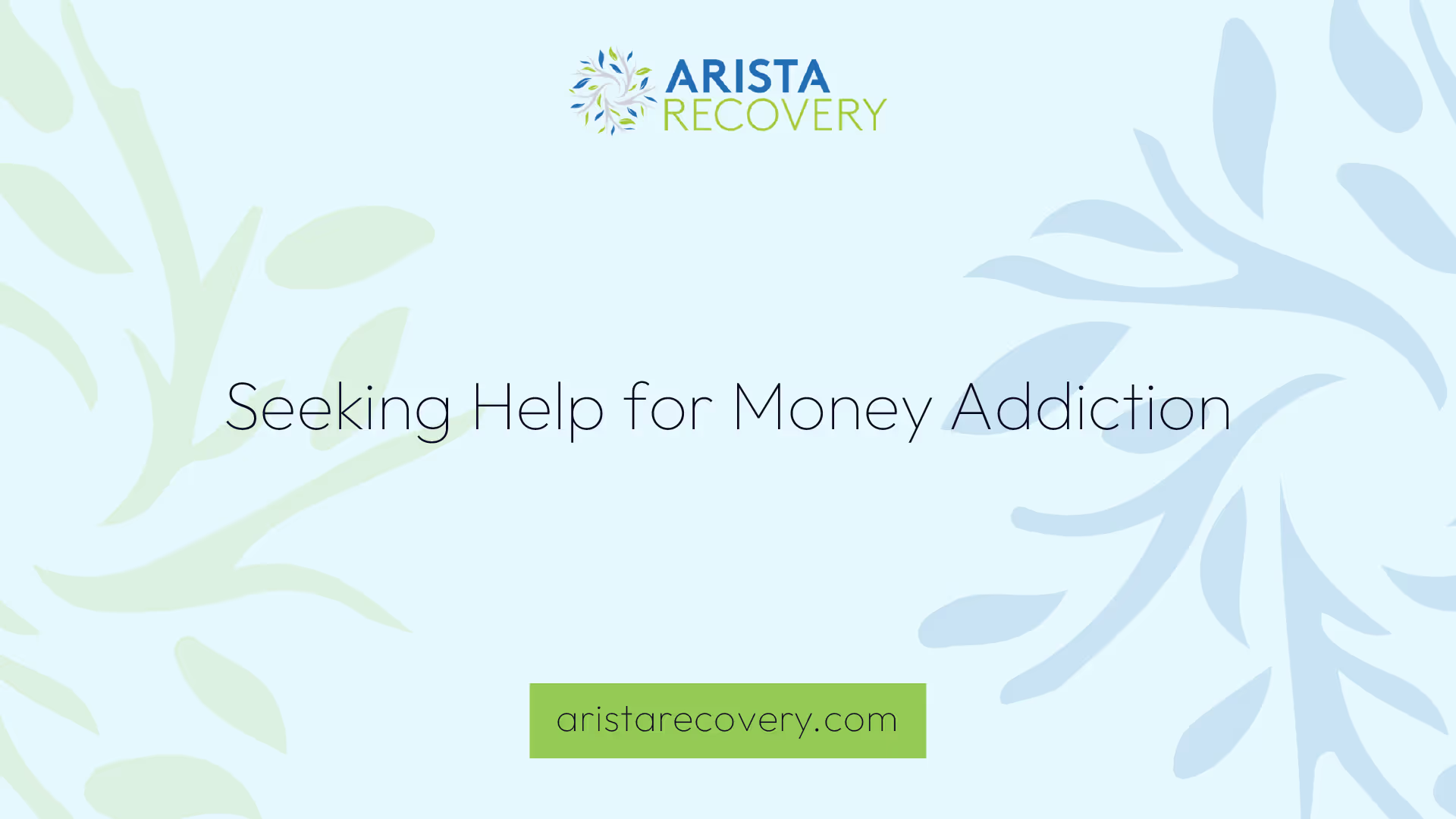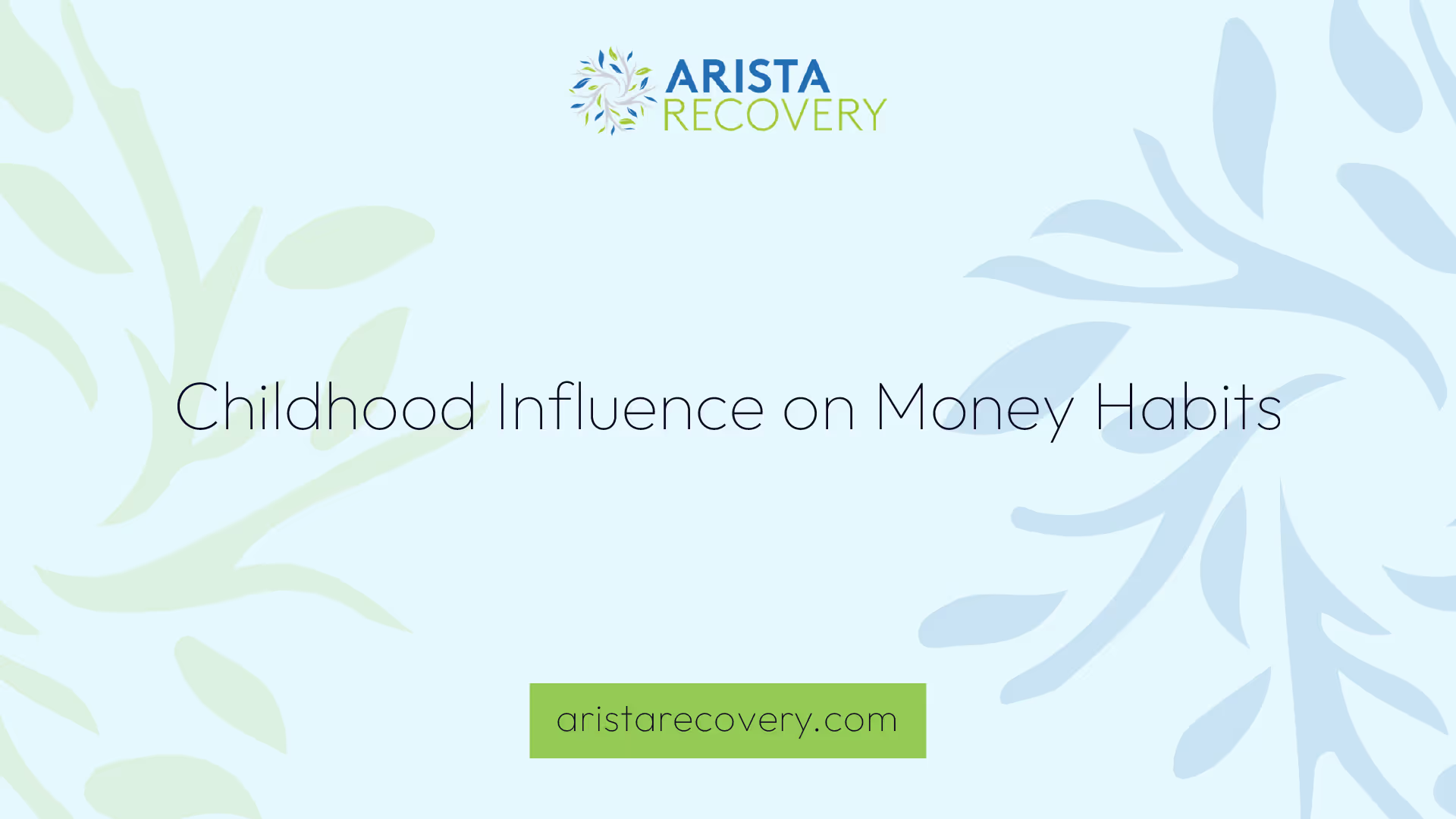What Causes Money Addiction?


Understanding Money Addiction
Money addiction, often perceived as a compulsive need to acquire and spend money, is a complex issue that is influenced by a variety of factors. Understanding the root causes of money addiction can be the first step towards seeking help and finding a path to recovery.
Psychological Factors at Play
Psychological factors have a significant role in the development of money addiction. Emotional triggers such as stress, anxiety, sadness, or loneliness can lead to compulsive shopping as a means to regulate these negative emotions. Shopping, in these instances, provides a temporary relief or distraction, but often leads to a vicious cycle of spending that is hard to break [1].
Additionally, low self-esteem is also a common trait amongst those battling money addiction. Individuals with this addiction often have a strong relationship with materialism, viewing material possessions as a source of status, self-worth, or validation from others. This emphasis on materialism can drive excessive spending behaviors as individuals seek to fulfill emotional needs through the acquisition of material items.
Influence of External Factors
External factors, such as societal pressure, advertising, and cultural norms, can also contribute to the development of money addiction. The constant exposure to marketing and advertising messages promoting consumerism can influence spending habits, often leading individuals to spend beyond their means. This behavior, similar to other addictions, can result in severe financial problems, including debt, financial instability, and even bankruptcy.
Moreover, societal and cultural norms that place a high value on material possessions and financial success can further exacerbate the issue. These norms can create pressure to conform to certain lifestyle standards, leading individuals to engage in excessive spending as a way to fit in or keep up with societal expectations.
Unraveling the causes of money addiction is a complex process, as it involves understanding both the internal psychological dynamics and the external influences at play. However, gaining this understanding can be a crucial step towards overcoming addiction, improving financial stability, and enhancing overall well-being. For more on the subject, visit our article on how does addiction affect finances.
Impact of Money Addiction
Money addiction, like any form of addiction, can have severe consequences that affect various aspects of an individual's life. It's crucial to understand these impacts, both financial and emotional, in order to fully grasp the seriousness of this addiction and the necessity for treatment.
Financial Consequences
Money addiction can lead to severe financial difficulties, including overwhelming debt and financial instability. This can significantly impact an individual's financial security and future goals [2]. For example, shopping addiction, a form of money addiction, can result in spending beyond one's means, accumulating significant debt, and struggling to meet financial obligations. This behavior can lead to financial instability, bankruptcy, and a cycle of debt that is challenging to break free from [1]. For a deeper understanding of how addiction affects finances, visit our page on how does addiction affect finances.
Emotional Well-being Effects
Beyond the financial consequences, money addiction can also contribute to high levels of stress, anxiety, and depression, affecting an individual's emotional and mental well-being [2]. Money itself can become addictive, with the pursuit of wealth considered a compulsive behavior that can lead to negative consequences and harm the individual's well-being. This behavior is part of a class of behaviors known as process addictions, which are distinct from substance abuse.
As with any addiction, the emotional toll of money addiction can be significant, affecting not only the individual struggling with the addiction but also their family and loved ones. It's important to recognize these emotional impacts and to seek help when needed. If you or a loved one are struggling with money addiction, remember that help is available. Visit our page on how to financially recover after addiction to learn more about the resources and support that can assist you on your journey to recovery.

Seeking Help for Money Addiction
Breaking free from the cycle of money addiction requires professional help and support. It's crucial for individuals looking to overcome money addiction and regain control over their finances and emotional well-being to seek support through counseling, therapy, or joining support groups [2].
Counseling and Therapy
Therapeutic approaches can play a significant role in addressing money addiction. Financial therapy, which combines psychological expertise with money management skills, is a growing field that can help individuals deal with traumatic experiences related to money and establish healthier relationships with finances. According to CNN, seeking help from professionals with financial therapy training or financial behavioral specialist certifications can be beneficial in addressing underlying emotional issues affecting financial habits.
Further, it is recommended to work with professionals who have a clinical background to delve into your money story and understand the reasons behind your financial behaviors. Processing past experiences with a therapist before addressing the numbers with a certified financial planner can help individuals establish a more positive relationship with money.
Support Groups and Resources
In addition to professional help, individuals struggling with money addiction can greatly benefit from joining support groups. These groups provide a safe and supportive environment where individuals can share their experiences, challenges, and successes in overcoming money addiction.
Emotional triggers, such as stress, anxiety, sadness, or loneliness, play a significant role in the development and perpetuation of shopping addiction. Shopping can provide temporary relief or distraction from negative emotions, leading to a cycle of compulsive shopping as a means to regulate emotions [1].
Support groups can provide valuable resources to help individuals identify and manage these emotional triggers, fostering healthier coping strategies. Additionally, being part of a group can help individuals feel less isolated, providing a sense of community and mutual understanding.
Remember, overcoming money addiction is not a journey that one should embark on alone. Professional help and peer support are crucial components of recovery. For further information on the financial consequences of addiction and how to financially recover after addiction, you can visit our articles on financial consequences of addiction and how to financially recover after addiction.
Genetic Factors in Addiction
When exploring what causes money addiction, genetic factors come into play. A person's DNA, or genetic makeup, can influence their susceptibility to different forms of addiction, including money addiction.
Role of DNA in Addiction
Research shows that DNA differences account for more than half of the variability in people's likelihood of developing substance use problems, with alcohol addiction being about 50% heritable and addiction to other drugs as much as 70% heritable. These findings suggest a strong genetic component in addiction, including money addiction.
One key aspect to consider is that much of the genetic risk for addiction is associated with self-regulation, which reflects how differently wired brains process risk and reward. Considering this, it's plausible that these same genetic traits could influence a person's relationship with money, potentially leading to compulsive spending or money addiction.
However, it's important to note that while genetics play a significant role, they are not the sole determinant of addiction. Environmental factors also have a substantial influence, and in many cases, the interaction between genetic and environmental factors can determine whether an individual develops an addiction.
Genetic Risk Factors
People with the highest levels of genetic risk for substance use disorders are four times more likely to develop a substance use disorder than those with the lowest levels of risk [4]. This shows how certain genetic predispositions can increase an individual's susceptibility to addiction.
Moreover, individuals who are more risk-taking or impulsive, prone to depression or anxiety, or have a parent with a substance use disorder are at elevated risk of developing an addiction. These factors, combined with a high genetic risk, could also potentially influence the development of money addiction.
Despite the role of genetics, it's important to remember that genetic information alone will never be fully predictive of substance use disorders due to the significant role of the environment. Efforts are being made to combine genetic and environmental information to help individuals understand their level of risk and provide them with the necessary support and resources.
Understanding the genetic factors in addiction can provide valuable insight into how addiction affects finances and the financial consequences of addiction. It can also pave the way for effective interventions to help individuals financially recover after addiction.

Childhood Influence on Money Habits
Childhood experiences play a significant role in shaping an individual's financial behaviors and attitudes, contributing to the understanding of what causes money addiction.
Early Money Messages
The lessons, experiences, and messages related to money that individuals receive during their childhood can form their "Money Imprint". This imprint, be it positive or negative, can significantly influence a person's financial behaviors throughout their life.
The way parents handle money can have a lasting impact on children. These lessons may not always be explicit; they can be subtle, absorbed through daily behaviors or casual remarks made by parents. This indirect learning shapes the child's perception of money and can later manifest as financial problems or even addiction.
Shaping Financial Behaviors
Children's experiences with money, such as receiving an allowance, being taught about savings, or witnessing financial conflicts, can imprint beliefs about money that influence their financial decision-making in adulthood. These early experiences can lead to behaviors like overspending to exhibit success, or conversely, making decisions that support financial security [5].
Understanding these early influences can be a crucial step for individuals struggling with money addiction, as it can help them identify the root causes of their problematic behaviors. Recognizing these influences can also aid in devising effective strategies to overcome addiction, improve financial habits, and work towards financial recovery after addiction.
In conclusion, the influence of childhood experiences on money habits underscores the complex nature of money addiction. It's not simply a matter of willpower or self-control, but a multifaceted issue entwined with an individual's upbringing, beliefs, and experiences. This understanding can pave the way for compassion and effective, targeted strategies to address and overcome money addiction.
Changing Money Beliefs
The road to recovery from money addiction often involves changing one's beliefs and attitudes towards money. This transformative process is essential for developing healthier financial habits and behaviors that align with one's life goals and values.
Constructing New Beliefs
Childhood experiences and lessons play a significant role in shaping an individual's beliefs and habits related to money in adulthood. These early money messages, whether positive or negative, can form a person's "Money Imprint" and influence their financial behaviors throughout life [5].
However, it is possible to challenge and change the money beliefs that no longer serve them. This process involves consciously constructing new beliefs that align with their values and financial goals, recognizing and replacing old money beliefs with new ones that support a healthier financial mindset [5].
This process of reconstructing one's money beliefs is often a journey of self-discovery, as it requires one to reflect on their past experiences and identify the source of their current financial behaviors. It also involves setting realistic financial goals and creating a plan to achieve them.
Seeking Therapeutic Support
If problematic money beliefs persist and significantly impact an individual's well-being, seeking help from a therapist specializing in Cognitive Behavior Therapy can assist in developing new habits and behaviors that align with the individual's desired financial outcomes [5].
Therapeutic support can provide the necessary tools and strategies to help individuals manage their money addiction and regain control over their financial decisions. It can also offer emotional support and guidance during the recovery process, which can be invaluable in overcoming the challenges associated with money addiction.
If you or a loved one is struggling with money addiction, it's never too late to seek help. There are numerous resources and support groups available to assist individuals on their journey towards financial recovery. For more information on how to financially recover after addiction, visit our article on how to financially recover after addiction.
Understanding what causes money addiction is the first step towards recovery. By changing one's money beliefs and seeking therapeutic support, individuals can overcome the barriers that money addiction presents and move towards a healthier, more fulfilling financial future.
References
[1]: https://www.thewavecolumbia.com/blog/is-it-possible-to-be-addicted-to-spending-money
[2]: https://www.northstarbehavioralhealthmn.com/resources/is-it-possible-to-be-addicted-to-spending-money
[3]: https://greatergood.berkeley.edu/article/item/howmoneychangesthewayyouthinkandfeel
[4]: https://www.rutgers.edu/news/rutgers-researchers-delve-deep-genetics-addiction
[5]: https://www.psychologytoday.com/ca/blog/financial-life-focus/201606/how-your-childhood-affects-your-money-today
You’re not alone in this.
When mental health challenges and addiction intersect, it can feel isolating. At Arista, we offer compassionate, evidence-based, and trauma-informed care to help you heal, grow, and move forward.
You’re not alone in this.
When mental health challenges and addiction intersect, it can feel isolating. At Arista, we offer compassionate, evidence-based, and trauma-informed care to help you heal, grow, and move forward.
Support that moves with you.
You’ve taken a brave first step. At Arista Recovery, we’re here to help you continue with best-in-class care designed for long-term healing and support.
.webp)






